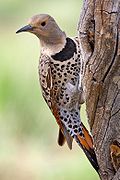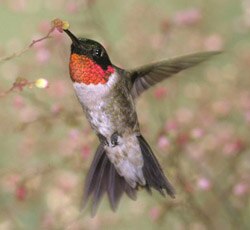Відповіді для Hагорода AM Следы животных, яку використовує Генеральної Конференції
Уровень сложности
1
Рік
1976
Version
27.12.2025
Орган затвердження
Північноамериканський Дивізіон
1
2
Animal tracks can tell us many things about the animal that made them, including:
- The species
- Its direction of travel
- How fast it was going
- How large it was
- How long ago the animal made the tracks.
- Sometimes tracks can tell the gender of the animal
- Sometimes tracks can tell us the animal's age.
3
Trailing and Identifying
This is a perfect activity for an afternoon hike during a campout. Bring a tape measure so that you can measure the tracks. Bring some powdered plaster of Paris, and a mixing bowl so that you can make casts. You can also bring water, though it is better to keep that for drinking rather than mixing with plaster. You can probably find some water along the way, but just to make sure, you should bring some water for the plaster. You can refill a bottle for plaster making without treating it as long as you make it obvious that it is not fit for drinking (mud is a good indicator).
Instruct your Pathfinders that they are to look for animal tracks along the way. When they find some (or when you do), try to figure out the species by comparing the track to those in a field guide or those depicted in the answers to requirement one. See if you can find more tracks nearby. Which way was the animal moving? How far can you track it?
Walking vs Running
If the tracks are far apart relative to the size of the animal, it was most likely running. Another indicator of running is that the tracks are deeper than those made by a walking creature (running makes the feet strike the ground with greater force).
Measuring Tracks
There is nothing in this requirement to suggest that the tracks of one animal made while running and walking has to be a wild animal, or even that you have to find a set of tracks like these pre-made. If you or a person in your group, or a person you know has a dog, take it to a sandy area and have it walk and run. Then get a tape measure and determine the distance between the tracks.
You can also do this in a parking lot, but in order for the dog to leave tracks, you will need to dip its feet in tempera paint (which is non-toxic and water soluble). It is best to pour some paint in a paper plate. Use two colors - one for the front feet, and one for the back. This will make it a lot easier to tell the front prints from the hind. Lift the dog, and have a helper wet the dog's pads. Then put the dog down and walk it (use a leash). Re-apply the paint, and then allow the dog to run. You should now have two sets of prints from a single animal. Get out a tape measure, and take the measurements.
The standard way to do this is to measure the distance between tracks made by the same foot. The distance between the left rear and the right front is almost meaningless.
4
4a
Do not select a space too close to your campsite, because you do not want to attract them into your camp. Animals need water, so a really good place to select is around a source of fresh water. River banks, stream banks, near ponds, and the shores of lakes are all good places to find animal tracks. However, the place you select must be quiet. Avoid places that are frequented by people.
4b
There may already be some tracks in the area, but you are interested in fresh tracks. Smoothing the ground erases them and allows for fresh prints. A mason's trowel works very well for this in mud. You can also use a trowel on sand, but be careful not to pack it down. The smoother you can make the surface, the finer tracks you will be able to see.
For dirt, it helps if you can sift it onto a flat surface and then lightly wet it. If your garden hose has a "mist" setting, use that after sifting the dirt onto a flat surface.
4c
| Note: The editors of this answer book feel that there is an error in the official version of this requirement. More Information Feeding wildlife is illegal in many jurisdictions
|
4d
| Note: The editors of this answer book feel that there is an error in the official version of this requirement. More Information Feeding wildlife is illegal in many jurisdictions
|
When camping, remember to store your food in a place where the animals cannot get to it. Seal it tightly and place it out of the reach of raccoons and bears (both of which are very clever at getting food). Under no circumstances should you store food in a tent - especially in one that people will be sleeping in. A tent poses no barrier to a hungry skunk.
The morning is the best time to check for tracks. Most forest creatures are nocturnal, so in the morning the tracks will be freshest. Also, human visitors are less likely to trample the tracks before you get a chance to observe and if necessary, cast them.
If you wish to photograph your tracks, it's best to do that in the early morning when the sunlight comes in at an angle. If you wait until the sun is high overhead, the track will not cast a shadow and it will be difficult to see. Turn off your camera's flash or it will completely wash out the shadows and the track will not show up in the photo. If you want to experiment with artificial light, use a flashlight to illuminate the track from the side. Place a coin or a ruler (for scale) next to the track before taking the picture. Take lots of photos (digital cameras are great for this) and hope that at least one of them turns out. It takes a lot of practice!
5
5a
5b
5c
5d
6
Animals leave many indications that they were present. These are collectively called sign. Sign includes:
- Tracks
- Not only footprints, but marks left on the ground by the tail or by other body parts. Beavers, muskrats, mice, and rats all leave tail marks on the ground.
- Scat
- Scat is another word for animal droppings or manure.
- Fur and antlers
- Animals may leave bits of fur behind if it gets caught in a tree's bark, or in thorns. In the fall deer drop antlers.
- Cuttings
- Cuttings are things such as acorn shells which have been nibbled on. Deer and squirrel often leave them behind.
- Scratches on trees
- Bears, members of the cat family, and other predators will sharpen their claws on tree trunks. Sometimes they will do this to mark their territory. Porcupines will eat the bark all the way around the trunk of a conifer, often killing it.
- Damage to trees
- beavers especially, but also other animals will damage trees by breaking branches, chewing twigs, and gnawing bark.
- Scent Posts
- Many animals mark their territory by urinating on trees or other prominent items. If you are walking through the woods and smell a strong musky odor, look around — you may find other sign.
- Carcasses
- Once a predator has had its fill of a kill, it will leave the carcass. Some animals will guard their carcasses though so they can feed on them again after they've digested some of the previous meal, so be careful if you find one.
7
Rabbit vs Squirrel Tracks
Rabbits leave a distinctive pattern when they bound along. The front feet are thrown between the hind feet, but one of them is almost invariably thrown farther back, and the two forefeet often print one behind the other (though sometimes they print side-by-side). A rabbit's hind feet leave larger oval-shaped prints about the size of a man's thumbprint. Since they use the hind feet rather than their forefeet to leap forward, they will push out some material behind them. It may be difficult to make out individual toes in a rabbit print.
Squirrels are also bounders, and like the rabbit, they throw both forefeet between their hind feet. But unlike the rabbit, the squirrel's forefeet generally print side-by-side. The hind feet should print five toes (four finger-like and one thumb-like) and no claws. The forefeet should print only four toes.
In general, a rabbit's pads are shaped like an oval while a squirrel's pads are shaped like a human hand.
If you're lucky enough to find a large set of tracks in the snow, and they lead to the base of a tree, it is almost certainly a squirrel, as rabbits cannot climb trees. The only way a rabbit could leave such a trail is if it had been abducted by aliens (or by an owl!)
Dog vs Cat Tracks
Unlike dogs, cats can retract their claws, and they do so when walking. Therefore, you should expect to find claw marks present in dog tracks, but absent in cat tracks. In general dogs tracks are larger than cat tracks, but you cannot rely on this alone, as there are some very small dogs and some very large cats.
8
Some species of mammal and some species of insect leave scent trails to communicate with others of their species. Canines, cats, deer, moose, alpaca and llama, and others will mark their territory with urine.
Ants lay down pheromone trails that lead to food sources. If you have ever seen a column of ants scurrying about in single file, you can be sure they are following a scent trail.
9
9a
Most perching birds (passerines) hop, though many can both hop and walk (such as ravens, blackbirds, and robins). Jays, sparrows, cardinals, titmice, nuthatches, finches, and many others hop. The tracks of hopping birds often print side-by-side as they tend to keep their feet together as they hop.
9b
Walking birds include crows, most waterfowl and shore birds (sandpipers, egrets, herons, etc.), and most game birds (wild turkeys, geese, ducks, grouse, doves, pigeons, etc.). The tracks of walking birds typically alternate left to right as they lift their feet one at a time.
10
- Feathers
- Droppings
- Nests
- Birdsongs (if you can hear them, they must be present!)
- Eggs or eggshells
- Pellets: Birds of prey regurgitate the indigestible portions of their meals. Birds have no teeth so they rip their prey apart with their beaks and swallow large chunks at a time. Then they digest the soft portions (such as meat) leaving the hair and bones behind to collect into pellets. They cough up these pellets which can be found by the astute observer.
11
Canadian geese can be identified from a great distance by their distinctive V formation.
12
12a
- b. Змея
- c. Черепаха
12d
12e
12f


